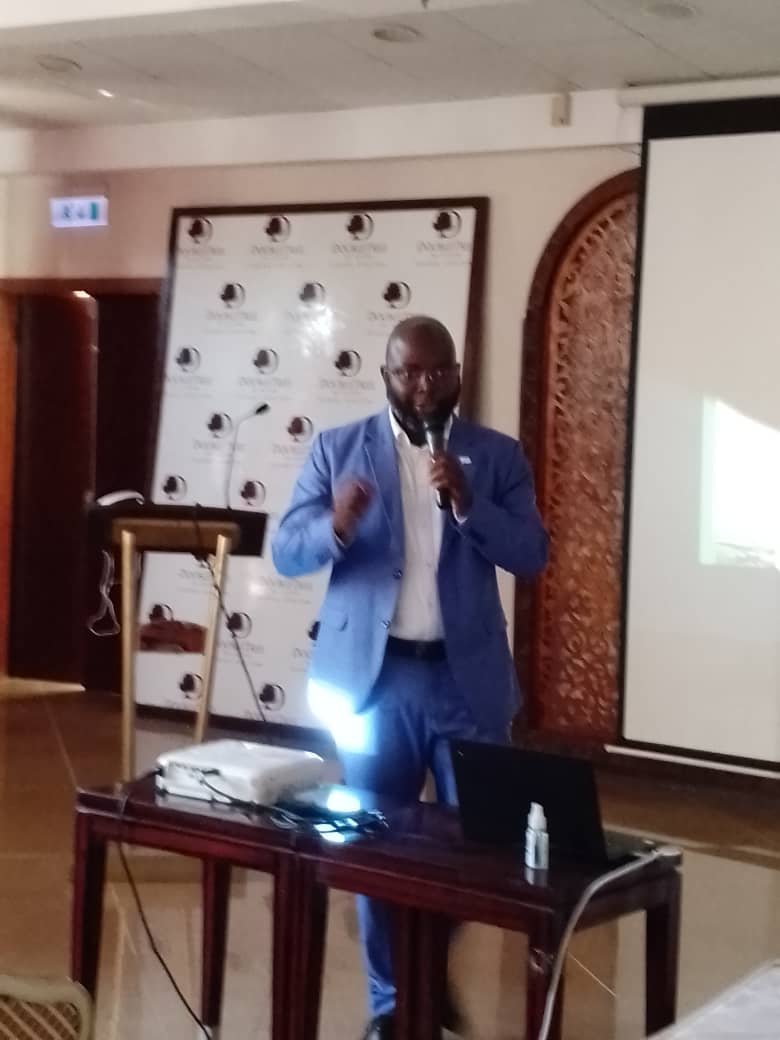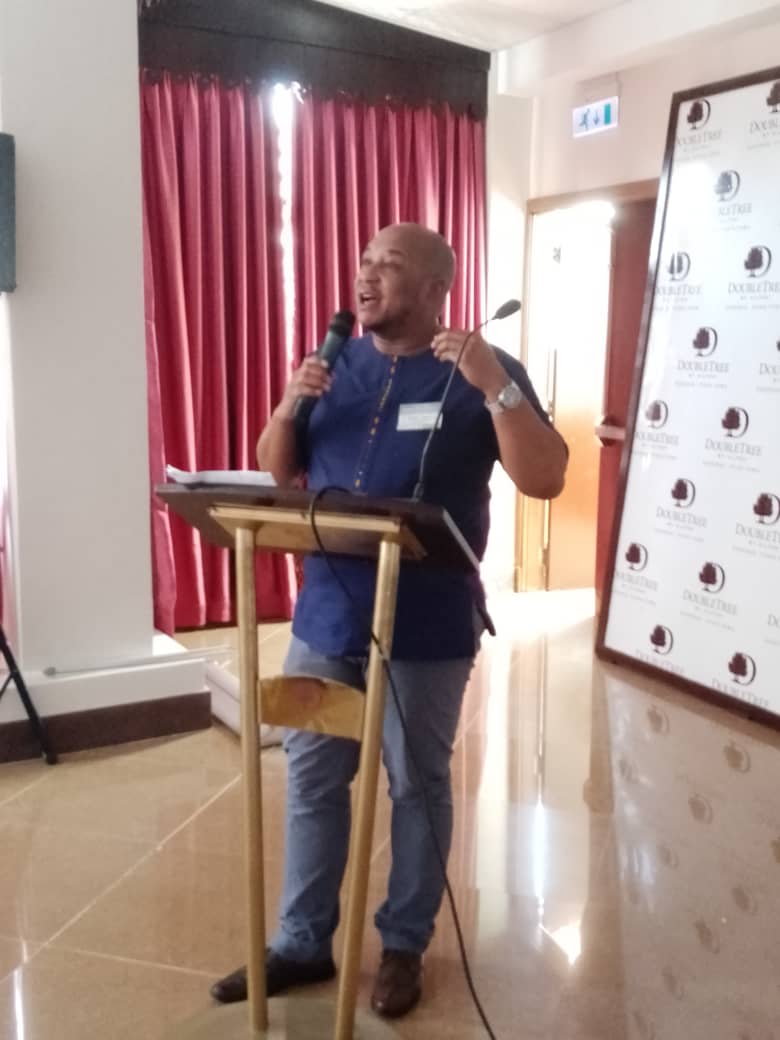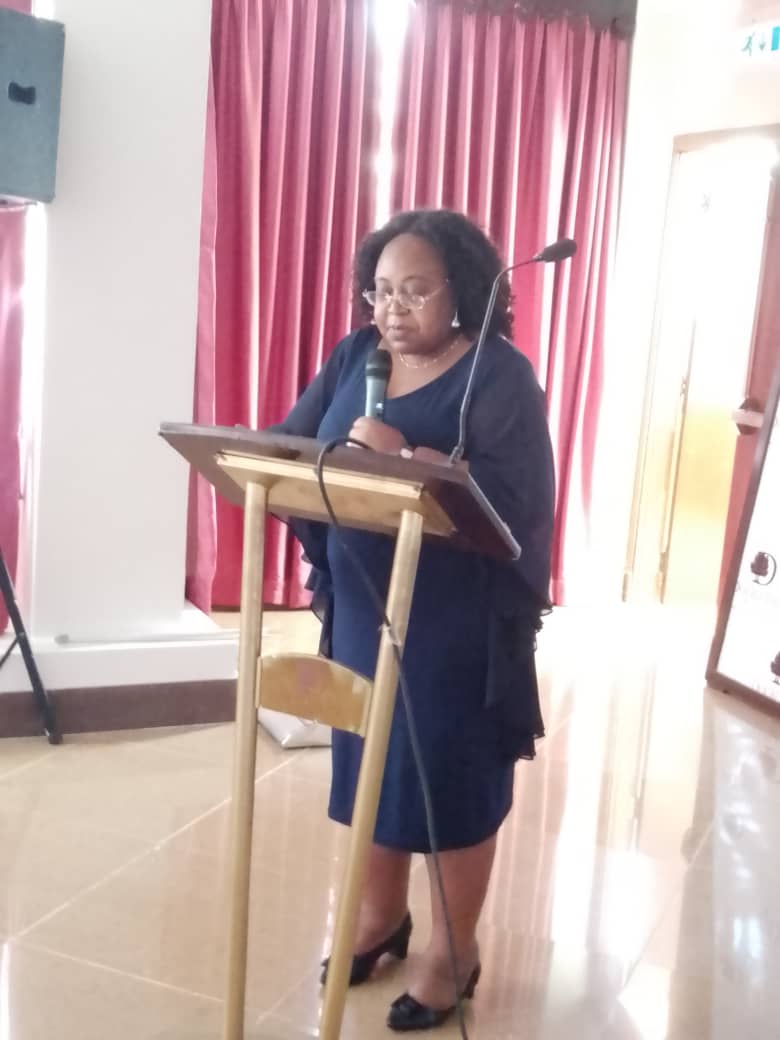|
Getting your Trinity Audio player ready...
|
Enhancing sustainable fisheries management and aquaculture development in Africa has the potential of boosting economies on the continent.
This emerged at a media training workshop that kicked off in Zanzibar, Tanzania today under the theme ‘Enhancing Sustainable Fisheries Management and Aquaculture Development in Africa.”
The meeting was made possible by the African Union Development Agency – New Partnership for Africa’s Development (AUDA-NEPAD) in partnership with the African Union – Inter-African Bureau for Animal Resources (AU-IBAR), with funding from the European Union in the frame of the programme for accelerated reform of the Sector (Fisheries Governance 2 Project)”.
Speaking on behalf of Dr. Nick Nwankpa the Director of the African Union – Inter-African Bureau for Animal Resources (AU-IBAR) Patricia Mweene Lumba, the Senior Knowledge Management Officer in the same organisation underscored the importance of accelerating fisheries and aquaculture governance, as per the Africa Blue Economy Strategy and the Policy Framework and Reform Strategy for Fisheries and Aquaculture in Africa (PFRS).
The workshop seeks to serve as a pivotal milestone to strengthen and provide a platform for media to continue exchanging knowledge and lessons, as their experience in reporting grows within the context of having current information on the fisheries and aquaculture sector.
“I have been informed that this workshop aims to enhance media capacity for reporting and knowledge management for reporting on critical issues in the fisheries and aquaculture sector, including thematic themes such as climate change, with the ultimate aim of strengthening communication and advocacy for the public sector and private sector investment within the sector in African Union member states.
“This event will therefore provide an opportunity for journalists, to find out more about AU-IBAR’s flagship project in fisheries and aquaculture, including the key policy instruments driving the effective management of the fisheries and aquaculture sector in Africa. Within this context, this initiative will seek to establish, define, and implement the definitions of excellence in media journalism to enhance reporting for the fisheries and aquaculture sector, and more especially find mechanisms by which the media and implementing partners of the Fisheries Governance 2 Project can work well together,” Lumba said.
Dr Clement Adjorlolo, the AUDA-NEPAD FishGov-2 Project Manager said the programme focuses on action responding to the Policy Framework and Reform Strategy for Fisheries and Aquaculture (PFRS) in Africa.

The significance of this workshop is to strengthen the media’s role and sensitize them on what is expected in advancing the fisheries and aquaculture sectors in Africa.
“AUDA-NEPAD recognizes the significant contribution that the fisheries and aquaculture sectors make to improving food and nutrition security and supporting livelihoods and economic development in Africa.
“In reflecting on the lessons and insights from the FishGov-1 project, the critical importance of communicating on new the FishGov-2 project implementation and results is appreciated,” Dr. Adjorlolo said.
According to Global Web Index, currently, 54% of daily media time is online. The media play a role as a source of information and act as a watchdog to protect the public interest and create public awareness.
The AUDA-NEPAD is spearheading the mobilization of all African media to efficiently and effectively make the FishGov 2 Project more visible on all platforms, in all AU Members States and Regional Economic Communities. of the FishGov-2, would go a long way in providing useful information and serve as a practical resource for AUDA-NEPAD and AU- IBAR.
Motseki Hlatshwayo, the Senior Technical Advisor for Fisheries and Aquaculture at the Southern African Development Community (SADC) Secretariat based in Gaborone, Botswana speaking on behalf of the Executive Secretary of SADC Secretariat, His Excellency Mr. Elias Mpedi Magosi thanked the African Union Development Agency (AUDA) and African Union Inter-Bureau for Animal Resources (AU-IBAR) for organizing the workshop.

He said the COVID-19 pandemic left economies battered, and livelihoods severely affected. The fisheries and aquaculture sector was also affected like other food production sectors.
“Though we are on our way to recovery, there is more that needs to be done to ensure that we build resilience and better adaptability for fish value chain players. This pandemic caught the world unprepared, with containment measures impacting both global supply chains and agri-commodity flows. The public health crisis raised some urgent questions: “how can fish and other aquatic foods and supply chains be prioritized as health-related interventions to avert both a malnutrition crisis and gender inequality?” Furthermore, “what are the integrated responses, investment opportunities, and governance mechanisms to effectively address the pandemic?”
“As “superfoods,” diets of fish and aquatic foods provide animal-source protein, omega-3 fatty acids, and micronutrients, including both vitamins and minerals, necessary for both the ill and the healthy. The affordability and accessibility of fish could address food and nutrition security needs, which became evident during lockdowns and border closures, boost immune systems, and increase commodity trade.
“Our programmes and future investments should allow us to build better, and I believe FISHGOV2 project will help countries, Regional Economic Communities (RECs), and Regional Fisheries Bodies (RFBs) to develop better policy responses in line with the Policy Framework and Reform Strategy for Fisheries and Aquaculture in Africa (PFRS) and in our region the SADC Protocol on Fisheries. By the way, this year we are Commemorating 20 Years of the SADC Protocol on Fisheries under the theme: “Protecting Our Fisheries- working towards a common future”, profiling how regional coordination led to the development of regional cooperation, and leading us to the current era of collaboration. We have already hosted three webinars to commemorate this milestone feat for the region and published a report and three policy briefs,” Hlatshwayo said.
He commended the AUDA-NEPAD and AU-IBAR for this initiative, which is not the first time it has been organized.
“This approach has become a global best practice as realization that blue growth, driven primarily from a food systems perspective by fisheries and aquaculture, are central to the new sustainable development paradigm, called blue economy. This is due to enormous opportunities and better options they provide for economic growth and livelihoods support. So empowering journalists to create more public awareness on the fisheries and aquaculture sector and the meaningful impact it is making on the livelihoods of Africans is very important.”
In 1948 the United Nations Conference on Freedom of Information declared access to information essential freedom—one that underpins all others. In this sense access to information can be understood as an end in itself. Yet in the developing world, mainly in Africa, more people are still lacking access to adequate information. In response, the UN annually calls for all countries to include a media development strategy within their economic development plans. In addition to securing this fundamental right, they said, “information media have an important role to play in education, social, and economic progress.”
Dr. David Balikowa, the Senior Livestock Officer for the East African Community said there is a need to empower journalists so that they would create awareness on the importance of fisheries and aquaculture in the development of economies. He underscored the need for the media to highlight bad practices leading to the depletion of fisheries and aquaculture resources as well as for policymakers to craft sound policies that increase fish production and productivity.
Dr. Islam Seif, the Principal Secretary of the Ministry of Trade and Industrial Development of Tanzania bemoaned the fact that fishing communities are facing challenges such as poor fishing infrastructure, storage facilities, lack of modern fish gear and equipment, and the lack of collateral to access loans.
He said for Africa to achieve its fishery objectives, there is a need to build appropriate fish ports and empower fishing communities to utilise the opportunity to explore deep-sea fishing with modern fleets and equipment.
Dr Seif added that a fishery value chain begins with a process of imparting the latest know-how on sustainable fisheries, capacity building, innovative tools, favourable instruments, infrastructure and technologies that enhance resilience and sustainability of the fisheries sector.






